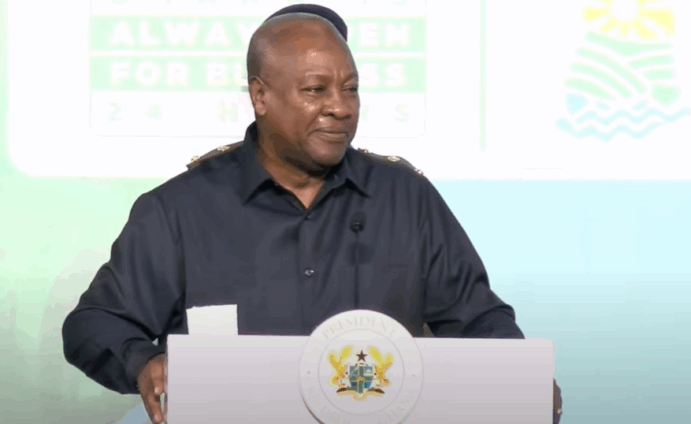Cedi gains: Implement a multi-pronged approach to sustain stability – Deloitte to government
Deloitte Ghana is urging the government to implement a multi-pronged approach that focuses on fiscal discipline, improving foreign exchange inflows, structural reforms and monetary policy effectiveness, if the cedi appreciation is not short-lived, whilst achieving a long-term economic stability.
It disclosed this in an article, “Unpacking the Ghana Cedi’s Resurgence: An Analysis of the Cedi’s Appreciation and Future Sustainability”.
On fiscal discipline, it stated that the government should ensure strict expenditure management, that is geared towards reducing budget deficits, avoiding large-scale unfunded projects and election-oriented spending.
In addition to improved expenditure management, Deloitte advised the government to rollout measures that enhance revenue mobilisation, including broadening the tax base, improving tax collection efficiency, and reducing tax exemptions to lessen reliance on borrowing.
It argued that areas such as property rates, environmental taxes, and misconduct fines have been under-exploited revenue generation avenues for some time now.
The professional services firm also called for prioirtisation of prudent debt management going forward.
“In this regard, we recommend that the government conclude the outstanding debt restructuring programme and ensure that future borrowing is sustainable and directed towards productive sectors and activities. The government should commit to keeping debt-to-GDP [Gross Domestic Product] and debt-to-revenue ratios within healthy limits, even beyond the current IMF [International Monetary Fund] programme, to ensure improved overall sovereign credit ratings and the country’s debt servicing position”.
With regard to improving foreign exchange inflows, Deloitte called for export diversification and value addition, noting that the current model of exporting some commodities in their raw state is a vicious cycle of transferring jobs and enhanced earning potential to foreign market players at the expense of Ghanaians.
“In this regard, we recommend that the government invest in initiatives that add value to our primary commodity exports, such as gold, timber, cocoa, and crude oil, among others. Export diversification initiatives should also include promoting non-traditional exports like processed goods, services (tourism, IT), and manufactured items”, it pointed out
“We encourage the government to work on strengthening the GoldBod initiatives following its positive dividend in the implementation so far to enable Ghana to reap the gains from its gold reserves. Further, the government should consider reviewing the fiscal regime in the extractive sector to increase the government’s share of revenue in the sector”, it added.
For monetary policy effectiveness, Deloitte urged the authorities to maintain a credible disinflation path, urging the Bank of Ghana to continue its tight monetary policy stance until inflation is firmly brought within the target band of 8% ± 2%. This, it said, will build confidence in the cedi's purchasing power.
Similarly, it urged the Central Bank to intervene in the forex market judiciously, aiming to smooth volatility rather than trying to fix the exchange rate at an unsustainable level, highlighting, "It is essential for the BoG to stick to its proactive liquidity support as witnessed so far in 2025".
On structural reforms to reduce import dependency, it called for the promotion of import substitution, where it urged the government as a matter of urgency, to implement policies that support local industries in producing large-ticket import items where Ghana has a comparative and/or competitive advantage.
It also advised the government to encourage investments in modernising agriculture to enhance food security and reduce reliance on imported food items. This, it believes, can include measures to de-risk the agricultural sector, including investments in irrigation systems, dams, and improved seeds and seedlings to enhance overall output and improve yield.
It also encouraged the government as part of its structural reforms to reduce the energy sector debt burden, enhance overall efficiency in energy production and distribution, as well as work to reduce the cost of power.
You may also like...
Diddy's Legal Troubles & Racketeering Trial

Music mogul Sean 'Diddy' Combs was acquitted of sex trafficking and racketeering charges but convicted on transportation...
Thomas Partey Faces Rape & Sexual Assault Charges

Former Arsenal midfielder Thomas Partey has been formally charged with multiple counts of rape and sexual assault by UK ...
Nigeria Universities Changes Admission Policies

JAMB has clarified its admission policies, rectifying a student's status, reiterating the necessity of its Central Admis...
Ghana's Economic Reforms & Gold Sector Initiatives

Ghana is undertaking a comprehensive economic overhaul with President John Dramani Mahama's 24-Hour Economy and Accelera...
WAFCON 2024 African Women's Football Tournament

The 2024 Women's Africa Cup of Nations opened with thrilling matches, seeing Nigeria's Super Falcons secure a dominant 3...
Emergence & Dynamics of Nigeria's ADC Coalition

A new opposition coalition, led by the African Democratic Congress (ADC), is emerging to challenge President Bola Ahmed ...
Demise of Olubadan of Ibadanland
Oba Owolabi Olakulehin, the 43rd Olubadan of Ibadanland, has died at 90, concluding a life of distinguished service in t...
Death of Nigerian Goalkeeping Legend Peter Rufai

Nigerian football mourns the death of legendary Super Eagles goalkeeper Peter Rufai, who passed away at 61. Known as 'Do...



